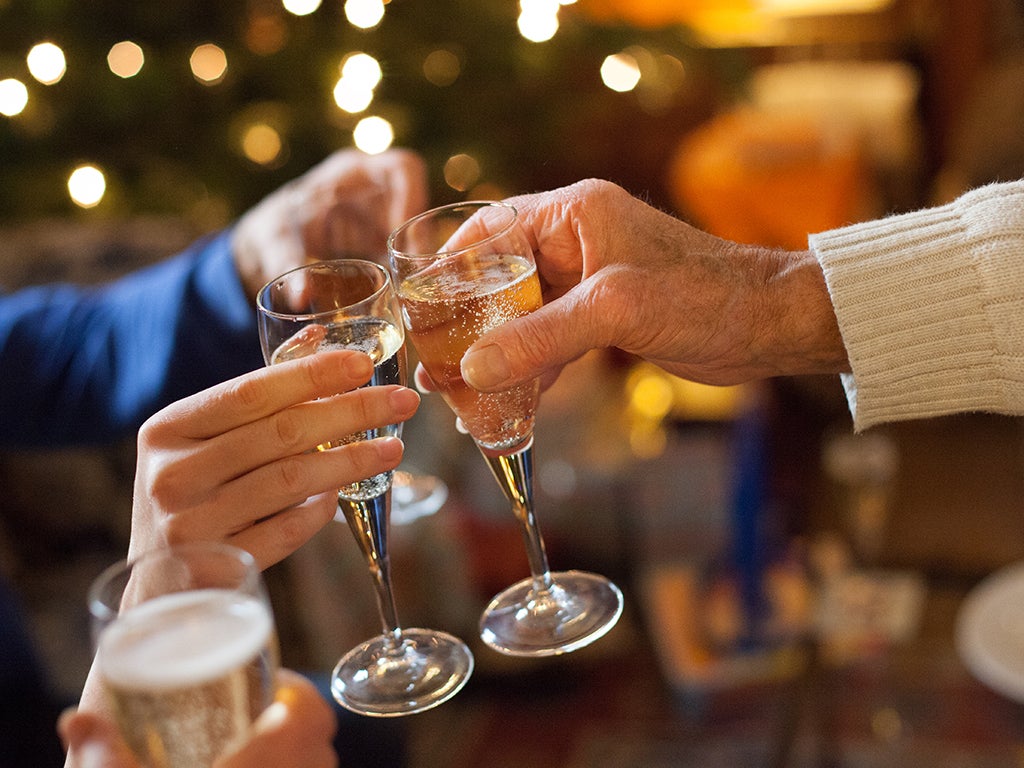The health benefits of alcohol: a smile on your face
We're under no illusions that alcohol will preserve youth like in the 1300s, but quality alcohol - enjoyed in moderation - has its benefits

Your support helps us to tell the story
From reproductive rights to climate change to Big Tech, The Independent is on the ground when the story is developing. Whether it's investigating the financials of Elon Musk's pro-Trump PAC or producing our latest documentary, 'The A Word', which shines a light on the American women fighting for reproductive rights, we know how important it is to parse out the facts from the messaging.
At such a critical moment in US history, we need reporters on the ground. Your donation allows us to keep sending journalists to speak to both sides of the story.
The Independent is trusted by Americans across the entire political spectrum. And unlike many other quality news outlets, we choose not to lock Americans out of our reporting and analysis with paywalls. We believe quality journalism should be available to everyone, paid for by those who can afford it.
Your support makes all the difference.As we slide ever closer to 2015, there will be plenty of people making their lists of New Year’s Resolutions. After the uber-indulgent Christmas period, a time of abstinence from booze is often number one on most people's charts, but surely a little measure of alcohol every so often can't be bad for you, can it?
I would hope that we all understand the dangers of alcohol which is, after all, a poison. And as with all things, too much alcohol is never a good thing. It's not just the aching hangovers (which seem even more cutting the older we get) and subsequent days lost to painkillers and bottled water, but the idea that we have taken on board too much of a good thing, having put aside common sense and dived headlong in the deep end of the swimming pool marked 'hedonism'.
The idea of drink being something of a positive for the body, even a medicine, has been written about throughout the ages. Of course, today we understand exactly what alcohol is, but back when it was produced mainly by monks and doctors, in a time when modern medicine simply didn’t exist, booze was seen as an elixir, a cure-all. The earliest forms of gin were Dutch-produced spirits with juniper flavouring, originally sold as a medicine.
The best example of spirits being seen as having medicinal properties is '40 Virtues of Armagnac' which was published in 1310 by Prior Vital Dufour and still remains in the archives of the Vatican to this day. In summary if you think of an ill, armagnac was listed as the cure - including the ability to preserve youth. One must question this alone due to the shockingly low life expectancy rate in the 1300s.
Today we know better than to laud distilled spirits, wines and beers and the secret to eternal youth and the cure for all your sicknesses. We love to drink, so how about giving up booze for a whole month come January? Our view is that we would rather encourage you to engage with fewer drinks, but better ones. And what better way to embrace that mantra, than by experimenting with different cocktails at home.
With the origin of the cocktail being about making crude spirits tasty through the addition of juices and other sweet liquids, the cocktail by its very nature tends to be diluted (and therefore less alcoholic), versus the traditional neat serve or on the rocks ideal for spirits.
Of course there are exceptions to the rule. Take the brilliant Negroni for example: one part gin, one part vermouth, one part Campari and serve over ice (with an orange zest for good measure - this sadly doesn’t cover one of your five a day). Here there are just three components, all booze, and the mixer is ice. When the mixer is ice, you know you’re in trouble!
But it doesn’t have to be this way, and cocktails are a great way to lower your booze intake but maintain a high level of enjoyment. Take the humble whiskey sour; a beautifully simple drink which is basically homemade lemonade (okay, so it does contain a fair bit of sugar) with a shot of whiskey in it... the brilliant thing about the whiskey sour is that you can make it as strong or, for a healthier option, as weak as you like. If you choose a good bourbon such as Four Roses Single Barrel, the strength of flavour can be enough for you to only need half a measure.
As poetic as the 40 Virtues of Armagnac is, with its wild claims about benefits to your health, there is one listed that is a truth, and that is that armagnac ‘enlivens the spirit’. For the true health benefit of alcohol is, when consumed in moderation, that it should put a smile on your face. Be it the wonderful taste of an aged single malt Scotch hitting your lips as you relax over Christmas, or the simple pleasure of a pint of real ale or a glass of red wine shared with family and friends, the associated grin on your face should be the real health benefit of these alcoholic liquids we love so much.
Joel Harrison and Neil Ridley are award winning spirits writers and presenters. Their new book, Distilled, is out now on Mitchell Beazley Publishing
Join our commenting forum
Join thought-provoking conversations, follow other Independent readers and see their replies
Comments